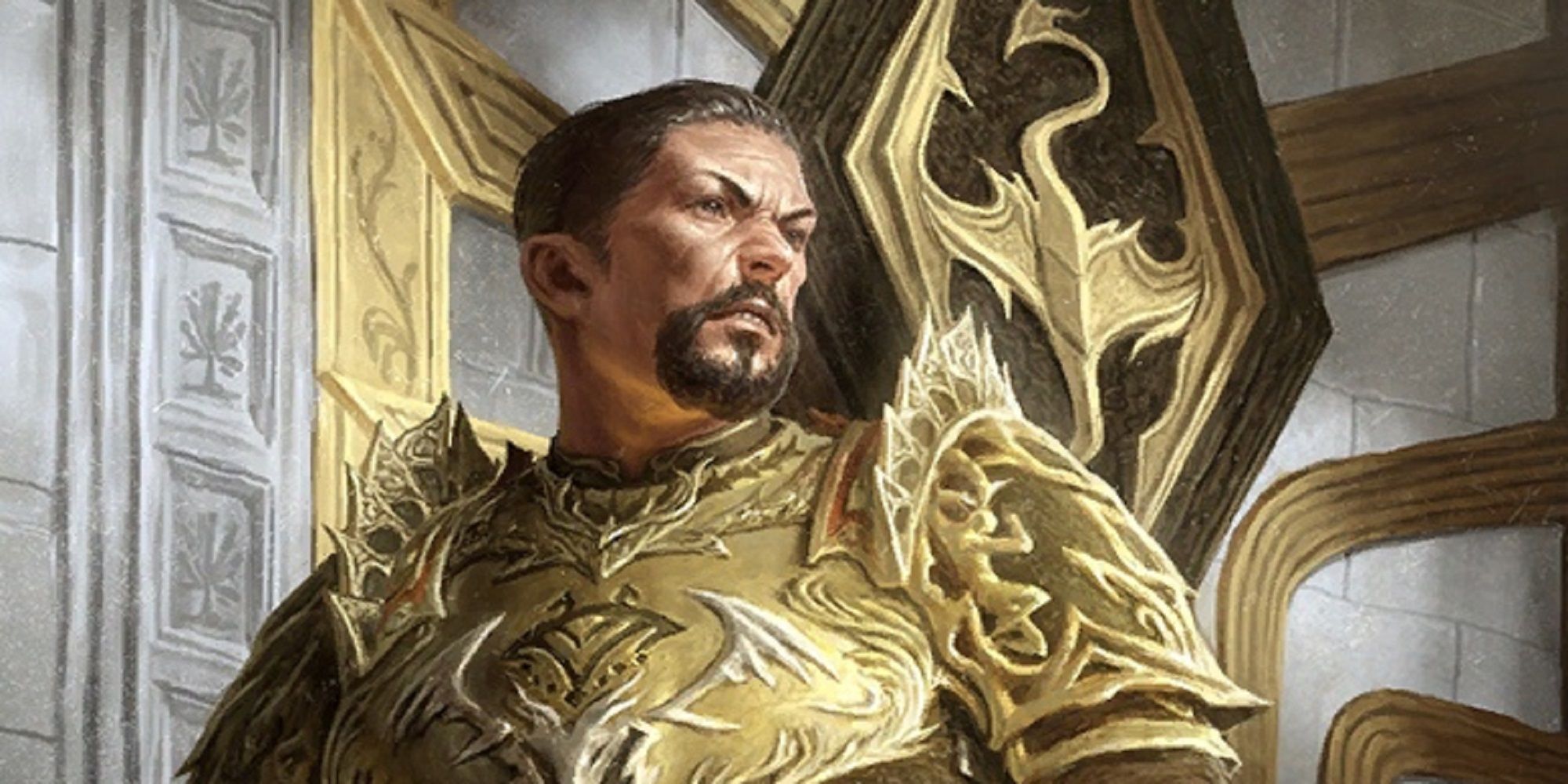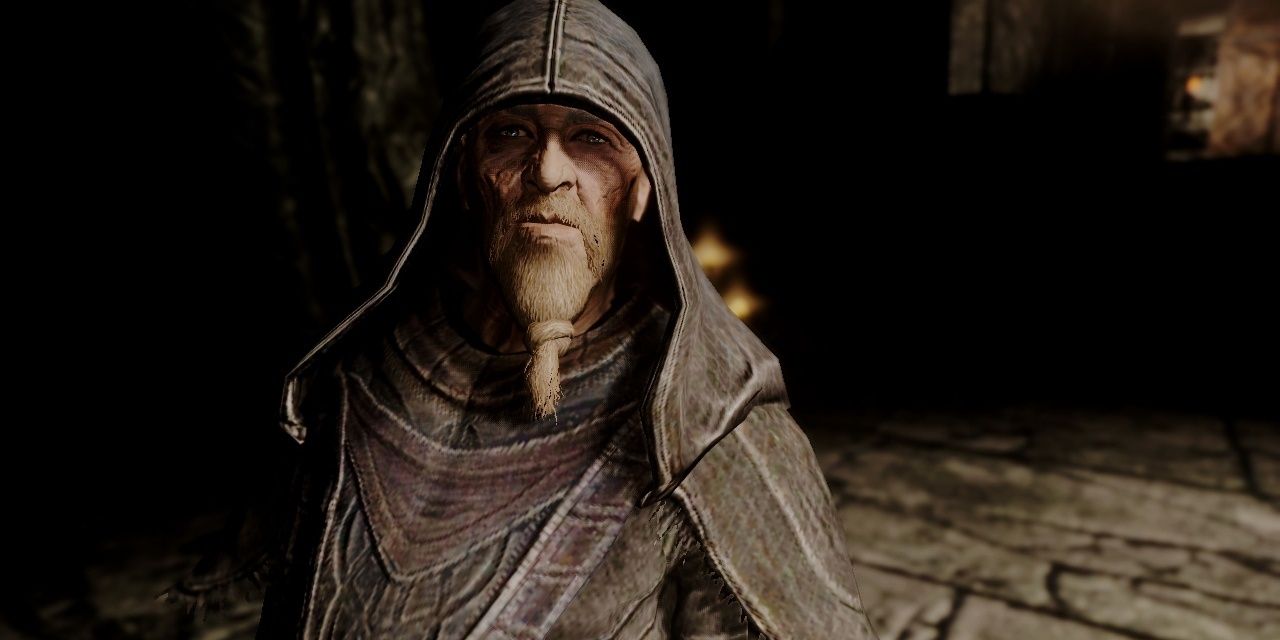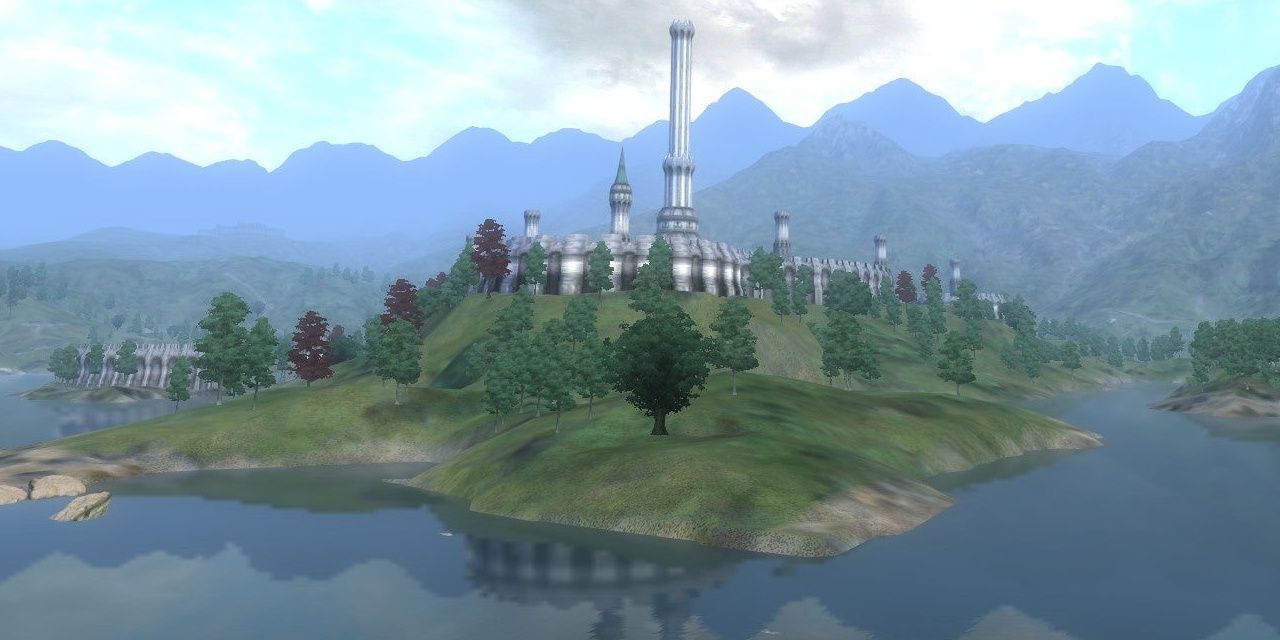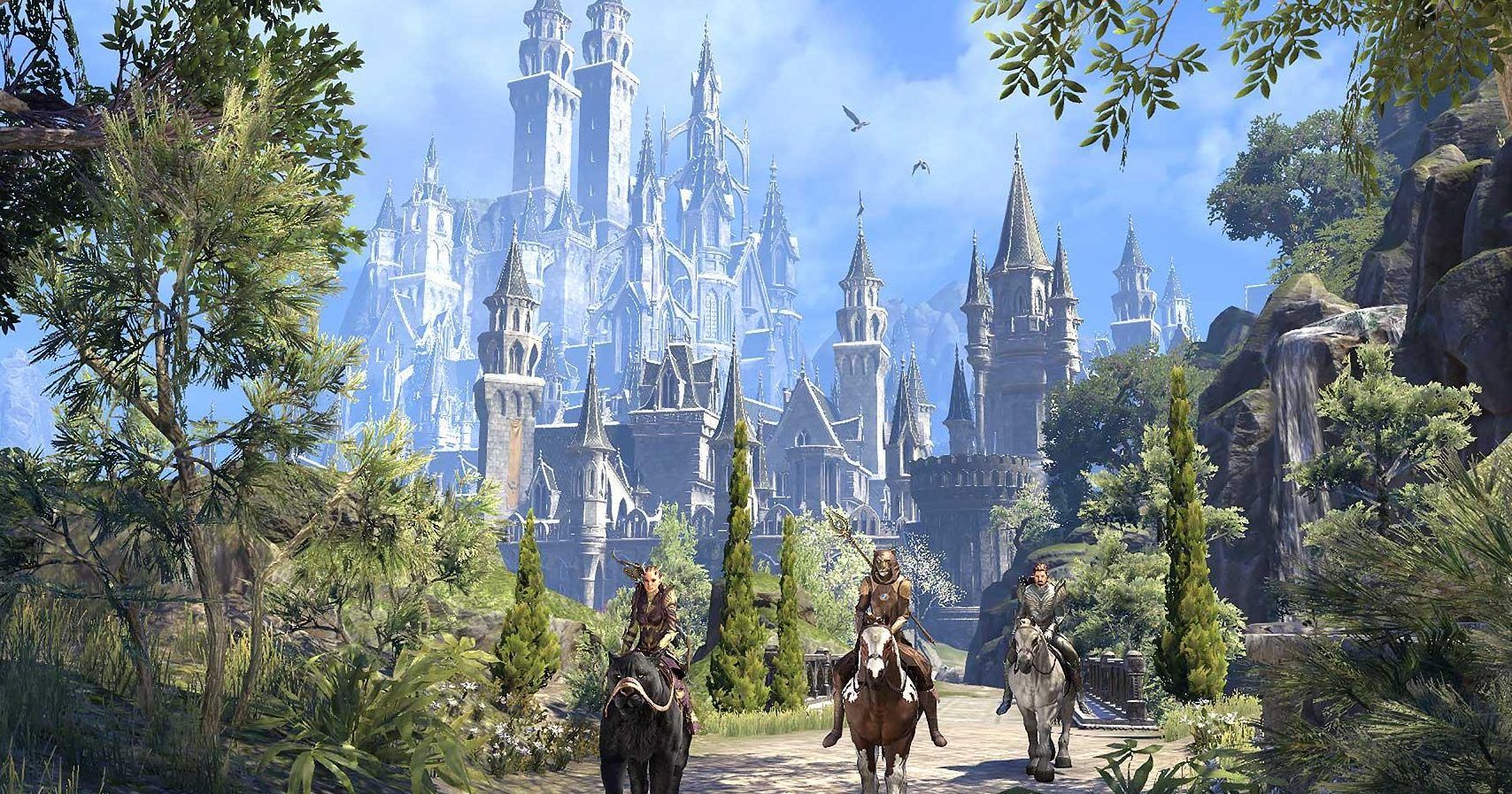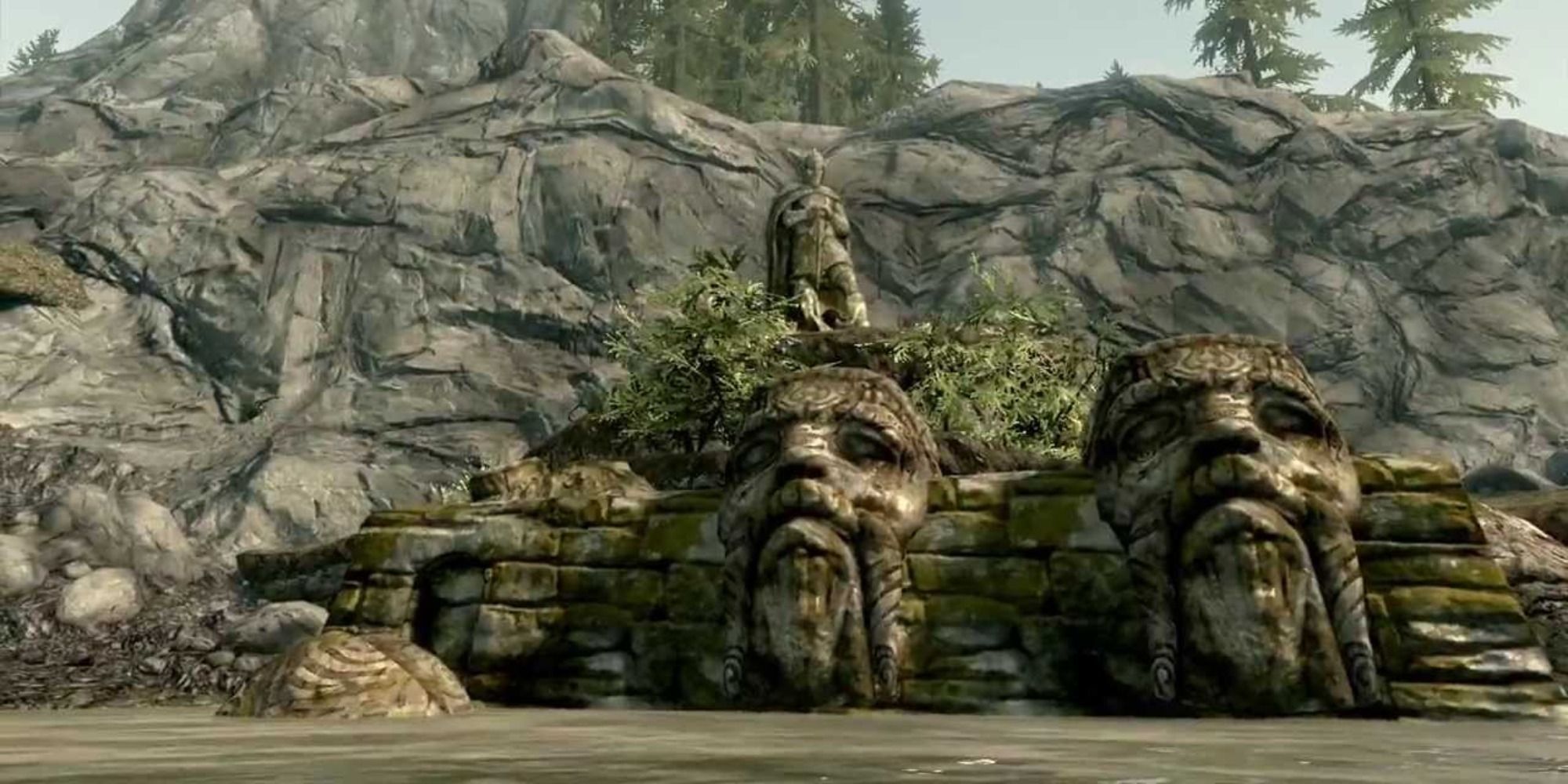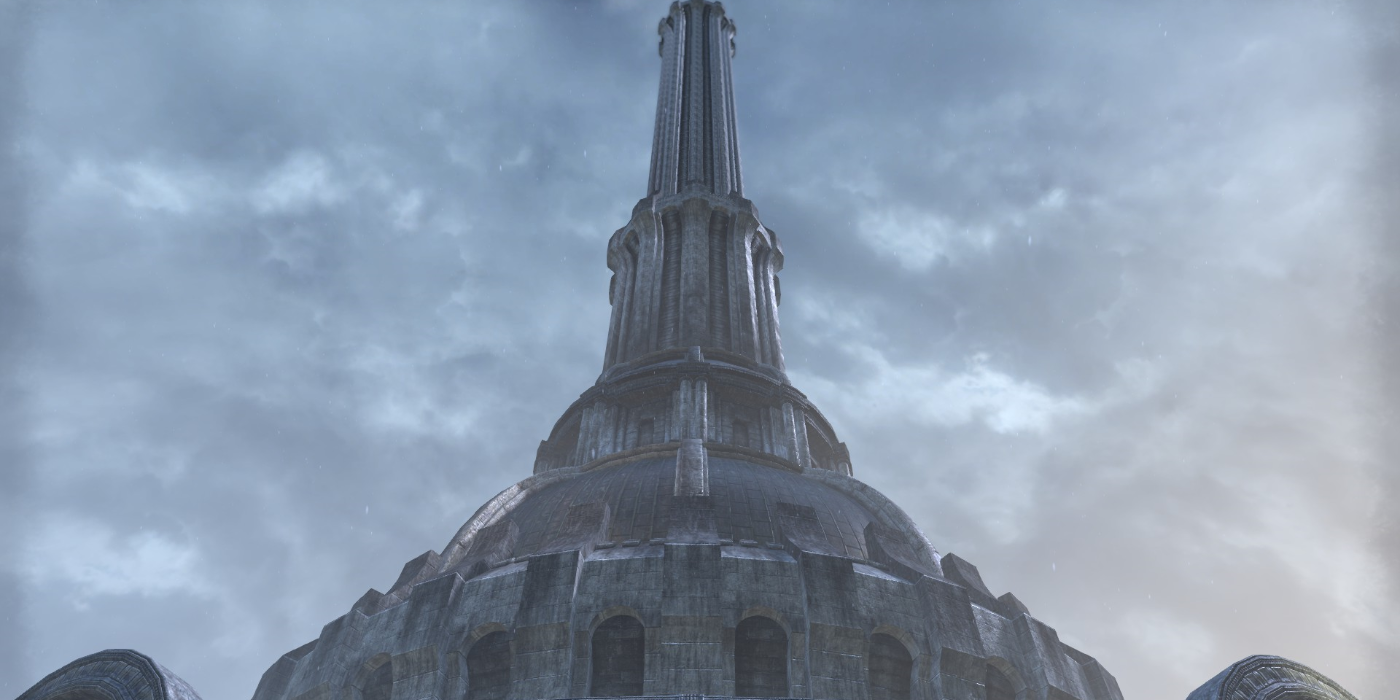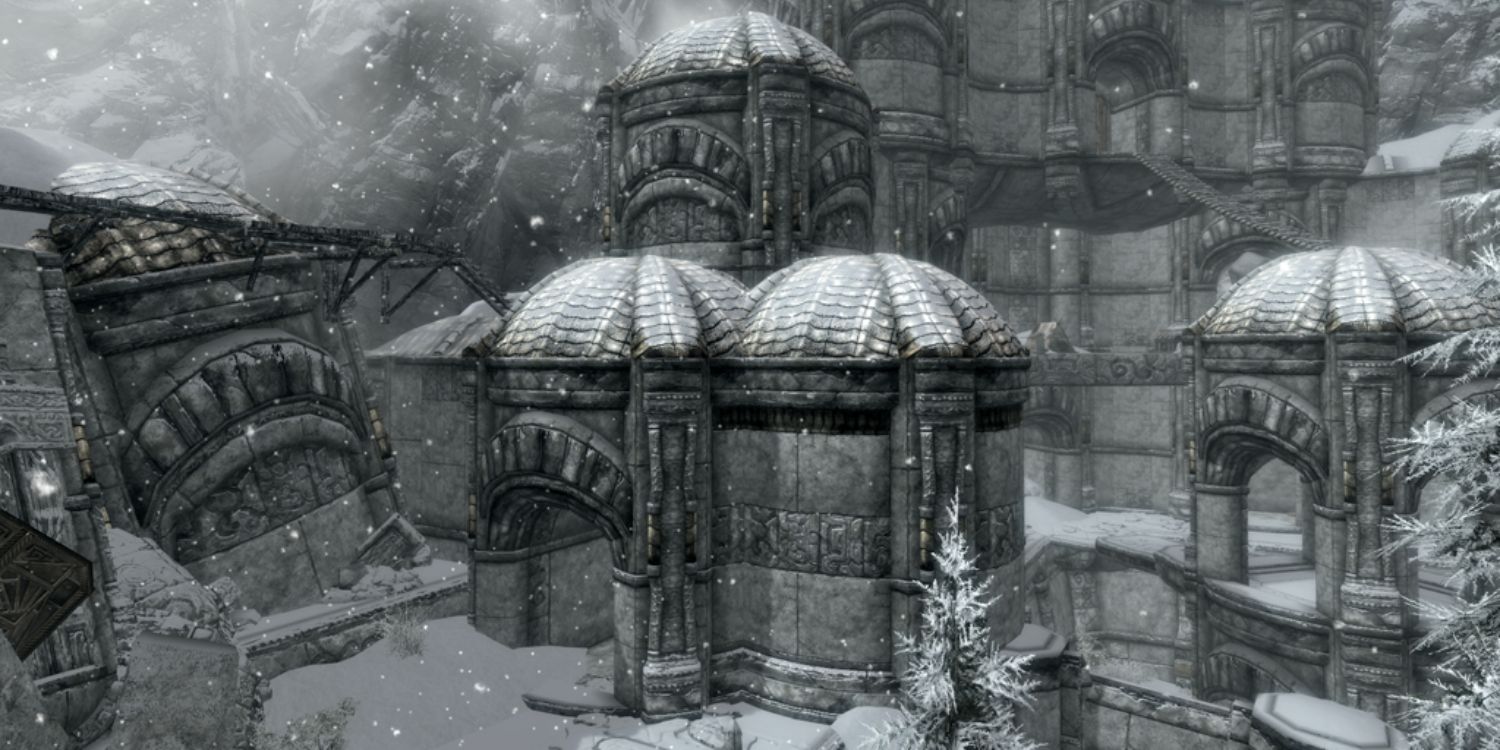Quick Links
The Elder Scrolls is no stranger to intrigue — the disappearing village in Valenwood, the many mysteries of Akavir, and wherever the heck the Dwemer all ran off to barely form the tip of the iceberg. Perhaps it's no great surprise, then, that the tale of The Elder Scrolls' most critical character is so shrouded. Half-truths and hearsay play as many roles in defining the life of the man who would be Talos as any historical accounting ever could.
From the twin canons of Tiber Septim's origins to the final years of his incredible world-shaping life, join us as we examine every scrap of lore Bethesda has so gracefully dropped along the way. May Talos guide us.
Birth and Upbringing
Like any good religiously motivated legend, the birthplace and formative decades of Tiber Septim's life are matters of heated debate. Broadly, there are two versions: the orthodox teachings and the rival beliefs espoused in The Arcturian Heresy. It's worth noting that cults have arisen through the centuries that have either blended aspects of both or spun stories entirely their own, but the orthodoxy and its heretical antithesis are the prime candidates for analysis.
In accordance with conventional teachings, Tiber Septim had the whole "Talos" thing going on from the beginning — he was born with the name of Talos on the frigid northern continent of Atmora. He ventured south to Skyrim at an early age, training alongside tribal chieftains and learning the ways of the Voice from the Greybeards.
South of Skyrim, several towns with names familiar to players of The Elder Scrolls IV: Oblivion — Anvil, Chorrol, Kvatch, and Skingrad — were at this time collectively known as the Colovian Estates. Talos, gifted in war, quickly rose through the ranks of the Colovian army under the command of a king named Cuhlecain. The forces of High Rock and Skyrim merged in active defiance against Cuhlecian's military campaigns, but when the Nords of Skyrim bore witness to Talos' Thu'um, they abandoned their High Rock allies, recognizing this young upstart as the Heir to the Empires of Men.
The orthodox teachings continue by implicating High Rock's Bretons in the assassination of Cuhlecain. With the Nords having betrayed them, the Bretons elected to strike a crippling blow through less savory means. Talos' throat was slit, but he did not die from the wound; rather, he could only whisper, preventing him from ever using the Voice in battle again. Not dissuaded from carrying on the fallen Cuhlecain's campaigns, Talos took the Cyrdoliic name Tiber Septim. And thus, the Tiber Wars began.
The Arcturian Heresy
But what of the heresy? Here, Talos is born Hjalti Early-Beard on High Rock's island of Alcaire. Hjalti's upbringing isn't quite so savory, culminating in the revelation that it is Hjalti himself who murders Cuhlecain. In a stroke of painful cleverness, he slashes his own throat to eliminate himself from the list of suspects, thereafter blaming High Rock instead.
Which version is true? The likeliest answer is "elements of both." There is evidence piled high to support events in both cases, though it's simple to see why the core tenants of orthodoxy would hew closely to something more morally sanitized. As we'll soon see, there can be no denying that some of the things Tiber Septim did were truly terrifying; but there is a difference between Machiavellian means (as with much of what follows), and the cold-blooded political scheming that the heresies espouse.
Uniting Tamriel
There's a reason every major conflict in the decades following Cuhlecain's death is listed historically as but one of many chapters in the "Tiber Wars." Every one of them is instigated by Tiber Septim, either directly or indirectly. And in one way or another, they result in a victorious young empire growing stronger and stronger still.
General Talos himself recovered the fabled Amulet of Kings from an old tomb with ties to the old Reman Empire; it was when the Remans fell that the Interregnum began, so named as the vast period between the end of the Second Empire and the coming of Talos' Third Empire. With the Amulet of Kings in his possession, all of Cyrodiil bowed before Tiber's might. The Colovian Estates and other regional powers united as one with the Imperial City as the chiefly established base of power.
Only a few unruly Jarls of Skyrim dared deny Tiber Septim his otherwise-undisputed rulership, and their cries soon fell silent. Now, Cyrodiil and Skyrim were his, and Talos the Mighty next set his sights on High Rock, followed by Hammerfell, and then the Khajit homeland of Elsweyr. Black Marsh was never invaded in full, as its swamp-infested central region was viewed with worry and disdain by Tiber's armies. With the swampland's few valuable resources deemed unworthy, Tiber instead conquered its surroundings, effectively establishing his rule over the Argonians from the outside pointed inward.
The Morrowind Exceptions
Morrowind was another matter. It was at this point in the red realm's history that the vengeful Dagoth Ur was awakening, leading the god-like Tribunal to sense a diminishment in their powers. Yet even though in death he'd be named the Ninth Divine Talos, Tiber Septim was justifiably apprehensive about invading the little-known land through traditional means when it was said to be overseen by actual deities Vivec, Almalexia, and Sotha Sil.
Vivec and Tiber Septim signed the Armistice, which gave Morrowind a greater sense of sovereignty than any of Tiber's other provinces. As part of the arrangement, Tiber was given the Numidium, the Dwemer-constructed brass golem with frightening destructive capabilities. It would not be inaccurate to say that Vivec thus played a key role in the rise of the Third Empire — and some rather dark acts orchestrated by Talos himself in the years to come.
Conquering the Elves
Valenwood and Summerset Isle formed a pact against Tiber Septim called the Aldmeri Dominion. And while Valenwood fell to Tiber's armies with relative ease, the High Elves of Summerset Isle were another story entirely. Conventional acts of conquest were out of the question; the High Elves' nation was too well-fortified, its people's command of magic too fierce, and perhaps most of all, the prevailing anti-mannish sentiment too indomitable.
When Vivec handed Tiber Septim the Numidium, he was essentially being given the keys to a weapon of mass destruction. But it was a weapon that, lacking its critical component (the Heart of Lorkhan), needed a replacement power source in order to operate as intended. Accounts vary as to how Tiber acquired a substitute, but the results are indisputable. It is said that the Numidium's capabilities were tested upon the substantial population of a conquered Khajiit city before being deployed against the High Elves' capital city of Alinor. Destruction was wrought on so great a scale that the High Elves surrendered in less than an hour.
Tiber Septim soon crowned himself the first emperor of a completely united Tamriel. Many viewed him with the degree of awe befitting a man destined to be looked upon as divine — as Talos — and his nearly four decades of relatively peaceful rule centered on rebuilding Cyrodiil and strengthening Tamriel-wide protection only added to the image.
Ascent to Godhood
It has been said that it rained for a full fortnight when Tiber Septim passed away at the remarkable age of 108. On his deathbed, he gave his heir, Pelagius, the imperial throne.
More to the heart of the matter, Tiber Septim achieved apotheosis and became Talos, the Ninth Divine. For millennia, the Divines numbered eight: there was Akatosh, Dragon God of Time; Arkay, God of Mortals; Dibella, Goddess of Art and Beauty; Julianos, God of Wisdom; Kynareth, Goddess of Heavens, Wind, and Rain; Mara, Goddess of Love, Compassion, and Nature's Bounty; Stendarr, God of Mercy, Justice, and Righteousness; and Zenithar, God of Work, Commerce, and Wealth.
In joining the Eight, Talos was anointed God of Civilization, and it is said that he watches over all those who would go to war in civilization's defense.
Fate of the Empire
The events of the first four mainline games in The Elder Scrolls series — Arena, Daggerfall, Morrowind, and Oblivion — all take place throughout the second half of the Third Era, an era that begins with Tiber Septim's successful conquest of Tamriel and ends when his final descendant, Martin Septim, perishes to save the realm from the Daedric Prince Mehrunes Dagon.
Martin Septim's heroic sacrifice (aided in large part by Sean Bean's exemplary voice acting, if we're being honest) concludes Tiber's family line on a high note, though surely a sad one. With the Septim Dynasty firmly a thing of the past, a succession of rulers outside the doomed royal bloodline squabbled for control of the empire with certain individuals such as Titus Mede I doing a better job keeping it barely afloat than others.
The Third Empire then waned, and within three decades of Martin Septim's death, the High Elves had not only ousted the imperials from Summerset Isle but conquered Valenwood as well. The leaders of the freshly-reformed Aldmeri Dominion had good reason for this boldness; the writing was clearly on the wall that the empire could not survive an effort to maintain complete political authority over Tamriel.
The White-Gold Concordat
Elsewyr was "liberated" by the Aldmeri Dominion in 4E 98, and in 4E 171, the Dominion's Thalmor leadership sent demands to Emperor Titus Mede II for vast swaths of land, outlandishly high sums of tribute, the dissolution of the military organization known as the Blades, and — most brutally of all — the abolition of all forms of worship to Talos as the Ninth Divine.
Suddenly, Tiber Septim's mythic shadow felt so much smaller. The Empire rejected the Dominion's terms, sparking the Great War, a four-year saga of harrowing losses intermixed with a mere handful of hard-won victories. The Imperial City was lost but then recaptured, a symbolic win for the tired empire. Having exhausted itself in a bid to prevent total annihilation, the empire was forced to accept the terms of the White-Gold Concordat, terms which included the pre-war, fury-inducing ban on Talos worship.
Enduring Legacy
To the north, to Skyrim, where the orthodoxy has ever dictated that the young Talos arrived from Atmora and learned the Thu'um from Greybeards, thus making him a brother to all Nords and the right man to unite the known world.
Few imperial citizens were thrilled to learn the news that any subsequent reverence toward Talos would need to be kept hidden, but for the people of Skyrim, it was not a "mere" elimination of one-ninth of their most precious pantheon. It was tantamount to the wholesale slaughter of their most important figure, the utter degradation of so much that they held dear in their daily lives.
An Age of Strife
Faced with the facts — the empire Talos founded was crumbling — and armed with personal disgust toward what they perceived as imperial cowardice, many Nords banded together beneath the revolutionary war flag of Ulfric Stormcloak, himself a wielder of the Thu'um. The so-called Stormcloak Rebellion is in full effect during The Elder Scrolls V: Skyrim, and it seeks to extinguish all imperial authority from Skyrim, reshaping Tamriel's coldest realm into the last bastion of Tiber Septim's dream.
Doing so means coming up against the very empire that their God of Civilization created; imperial counterpoints include the fair assessment that a further destabilized Third Empire plays directly into the hands of the Thalmor and threatens Skyrim with the prospect of a losing battle against a harsh High Elven crusade.
Whatever choices the Last Dragonborn makes during the events of the fifth game, and however Skyrim's costly Civil War comes to a close, one thing seems destined to continue, even if in secrecy. Even with the Septim line having ended, even with the stalwart passions of conquest long since faded, there will always be those whose reverence toward Talos flickers true like a candle in the dark.

